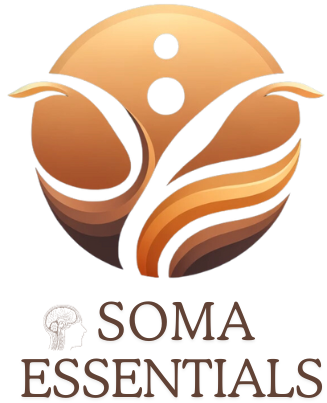What Techniques Or Exercises Can Help Cultivate A Stronger Mind-body Connection?
The article, “What Techniques Or Exercises Can Help Cultivate A Stronger Mind-body Connection?” methodically examines the fusion of physical and psychological exercises that can aid in fostering a palpable harmony between your mind and body. This piece aims to articulate diverse approaches, ranging from yoga to mindfulness practices, all designed to elevate your consciousness and body awareness. As you progress through this composition, you’ll extract valuable insights into the impact such practices have on your overall wellbeing, outlining key techniques and how to seamlessly incorporate them into your daily routine.

Understanding the Mind-Body Connection
the mind-body connection refers to the intricate relationship between our mental and emotional health and our physical wellbeing. It’s an essential concept built on the theory that our thoughts, feelings, beliefs, and attitudes can positively or negatively affect our biological functioning. Throughout this article, you will gain an in-depth understanding of this connection, and we will explore various practices that can enhance it.
Concept of Mind-Body Connection
The concept of the mind-body connection is based on the idea that the mind is not just confined to the brain, but it is connected to the body in complex and significant ways. This unique connection means that our emotions and thoughts can directly impact our bodily functions, from our immune response to our hormone levels, and vice versa.
Science Behind the Mind-Body Connection
The scientific community acknowledges the influence of the mind-body connection, particularly through psychoneuroimmunology studies. It hints that our emotional state can affect our immune system, our stress levels can affect hormone production, and our mental state can influence our perception of physical pain. Techniques such as biofeedback, where individuals learn to control bodily processes such as heart rate, have provided clear evidence of this relationship.
Advantages of a Strong Mind-Body Connection
A strong mind-body connection has numerous advantages such as better physical health, improved mental wellness, enhanced stress management, stronger immunity, decreased risk of diseases, and an overall heightened sense of wellbeing. It also helps individuals handle life’s challenges more gracefully and emboldens them towards positive behavioural changes.
Yoga and its Role in Cultivating Mind-Body Connection
Yoga, an age-old practice hailing from ancient India, is an excellent tool for nurturing the mind-body connection. It encourages mindfulness and promotes self-awareness, helping practitioners experience a deep sense of connection between their minds and bodies.
Basics of Yoga
Yoga is a practice that combines physical postures, breath control, and meditation. It aims to foster physical fitness, manage stress and anxiety, enhance self-awareness, and cultivate peace of mind. The basic practice of yoga involves learning to connect your breath with movements, fostering a deep sense of connection with your body.
Different Yoga Poses to Enhance Mind-Body Connection
Certain yoga poses, such as the Tree Pose (Vrikshasana), Warrior Pose (Virabhadrasana), and Corpse Pose (Savasana), can enhance mind-body connection. These poses necessitate balance, focus, and mindful breathwork, thereby strengthening the awareness and connection between the mind and body.
Breath-work in Yoga
Breath-work or Pranayama is an essential element of Yoga. Breathing exercises not only help in controlling the mind and emotions but also strengthen the respiratory system. They can enhance the connection between the body and mind by relieving stress, which ultimately harmonizes the mind-body connection.
Meditation and its Impact on Mind-Body Connection
Meditation is a powerful tool when it comes to fostering a stronger mind-body connection. It helps calm your mind, sharpen your focus, reduce stress, and improve mental clarity, thereby enhancing the mind-body connection.
Principles of Meditation
The essential principles of meditation include focused attention, open monitoring, and kindness and compassion towards oneself. These principles ensure that you stay present without judgment, deepen your self-awareness, and accordingly cultivate harmony between your mind and body.
Different Types of Meditation
There are several types of meditation, including mindfulness meditation, concentration meditation, loving-kindness meditation, and transcendental meditation, each with their unique benefits and processes. All these forms of meditation can help improve your mind-body connection through heightened self-awareness and emotional control.
Role of Meditation in Balancing Mental and Physical Health
Meditation plays a pivotal role in fostering mental and physical health balance. It can augment our ability to cope with stress, reduce anxiety, and foster emotional health. Moreover, it promotes improved sleep, lowered blood pressure, and enhanced immune response, which directly link to physical health.

Practicing Mindfulness for a Stronger Mind-Body Connection
Mindfulness is a fundamental tool for enhancing mind-body connection. It involves being present in the moment, accepting it without judgment, and acknowledging your emotions and thoughts objectively.
Understanding Mindfulness
Mindfulness is the practice of intentional awareness of your thoughts, feelings, sensations, or environment without attempting to change them. This non-judgmental observation of your ongoing experiences can foster a deeper connection and understanding between your mind and body.
Techniques of Practicing Mindfulness
Different techniques to practice mindfulness include mindfulness meditation, body scans, mindful eating, and mindful walking. These techniques invite you to slow down, concentrate on the present moment, and truly experience your feelings, thoughts, and physical sensations.
Benefits of Mindfulness for Mind-Body Connection
Practicing mindfulness can lead to reduced stress, improved attention, better emotional resilience, and increased self-compassion. By promoting self-awareness and acceptance, mindfulness fosters a stronger mind-body connection.
Role of Regular Exercise in Improving Mind-Body Connection
Physical fitness is an essential element in strengthening the mind-body connection. Regular exercise boosts your mood, manages stress, improves sleep, and enhances your overall mental health.
Importance of Physical Fitness
Physical fitness plays a crucial role in promoting mental wellbeing. It improves blood circulation, balances hormone levels, increases energy, and plays a role in managing symptoms of depression and anxiety.
Different Types of Exercises
Various exercises, including cardio workouts, strength training, flexibility exercises, and aerobic exercises, can enhance physical health and, in turn, strengthen the mind-body connection. Engaging in regular physical exercise can help you tune into your body and become more aware of its strengths and capabilities.
Mental Benefits of Regular Exercise
Regular exercise releases endorphins – the body’s natural mood lifters. It can also boost self-confidence, serve as a distraction from worrying thoughts, and help you gain control over your physical wellbeing, thereby fostering a robust mind-body connection.
Diet and Nutrition for a Healthy Mind-Body Connection
A balanced diet plays a significant role in maintaining and improving both mental and physical health, thereby fostering a stronger mind-body connection.
Impact of Diet on Mental Health
Our diet significantly affects our brain’s chemical balance. Consuming a healthy diet rich in fruits, vegetables, lean proteins, and whole grains can enhance mental acuity and emotional wellbeing. On the other hand, poor dietary habits can contribute to mental health disorders like depression and anxiety.
Best Foods for Mind-Body Connection
Foods rich in omega-3 fatty acids, such as salmon and flaxseed, can enhance brain function and mood. Complex carbohydrates found in whole grains, fruits, and vegetables can stabilize blood sugar levels and boost mood and energy. Consuming a variety of such nutritious foods can greatly enhance your mind-body connection.
Role of Proper Nutrition in Strengthening Mind-Body Connection
A balanced diet can nourish your brain and keep your body functioning optimally. When your body feels good, it’s easier to have a positive outlook, which contributes to a stronger mind-body connection.
The Power of Positive Affirmations
Positive affirmations are another powerful approach to improving the mind-body connection. They encourage a positive mentality and can significantly influence your overall wellbeing.
Understanding Positive Affirmations
Positive affirmations are positive statements that can help you challenge and overcome self-sabotaging and negative thoughts. When regularly and accurately used, they can alter your mental pattern, inspiring positive changes in your life.
How to Use Affirmations to Improve Mind-Body Connection
Using affirmative statements like “I am strong,” “I am healthy,” or “I can handle this” can help you maintain a positive mental outlook and enhance your mind-body connection. The trick is to identify negative thoughts and feelings and counter them with positive affirmations.
The Science Behind Positive Affirmations
Research suggests that positive affirmations can increase a person’s problem-solving abilities under pressure, reduce stress, and promote mental wellbeing. By instilling you with optimistic thoughts and emotions, they foster a positive mind-body relationship.
Breathing Exercises to Enhance Mind-Body Connection
Breathing exercises are another essential tool in cultivating a robust mind-body connection. They can help you gain better control of your body’s responses and promote mental clarity.
Basics of Breathing Exercises
Breathing exercises involve controlling your breath, often by inhaling, holding your breath, and then exhaling for specific periods. These exercises can increase your awareness of your physical state and help you temper your emotional reactions to stressors.
Breathing Exercises for Mental Clarity
Practices such as deep breathing, box breathing, and pranayama in yoga can clear your mind, reduce stress, and help you focus. By consciously controlling your breath, you can learn to regulate your emotional state and stress responses, strengthening the connection between your mind and body.
Breathing Techniques for Stress Management
By lowering stress levels and calming the mind, breathing exercises play a vital role in stress management. These exercises can help synchronize the body and mind, giving you a sense of inner peace and strength.
Influence of Sleep on Mind-Body Connection
Sleep is an essential element of maintaining a healthy mind-body connection. Quality sleep can improve your mood, clear your mind, and allow your body to recover and rejuvenate.
Importance of Good Sleep
Quality sleep is vital for mental and physical health. It allows your brain to eliminate toxins, process emotions, and consolidate memories. A lack of quality sleep can lead to cognitive issues, mood swings, and various health problems.
Impact of Sleep Quality on Mental and Physical Health
Inadequate sleep can negatively impact your mood, memory, and cognitive functions. It can also result in weakened immunity and increased susceptibility to illnesses. Therefore, promoting good sleep is essential in fostering a healthy mind-body connection.
Sleep Practices for a Better Mind-Body Connection
Establishing a regular sleep schedule, creating a restful environment, limiting daytime naps, and avoiding meals, caffeine, and alcohol close to bedtime can enhance the quality of your sleep. These practices can enhance your mind-body connection by ensuring your body gets adequate rest and your mind is rejuvenated.
Relaxation Techniques for a Stronger Mind-Body Connection
Relaxation techniques are instrumental in cultivating a stronger mind-body connection. These methods help you manage stress, increase self-awareness, and maintain emotional balance.
Understanding Relaxation Techniques
Relaxation techniques are methods used to release tension and reduce stress. They involve activities like deep breathing, progressive muscle relaxation, visual imagery, meditation, and yoga that aim to calm the mind and relax the body.
Role of Relaxation in Cultivating Mind-Body Connection
Relaxation methods can significantly improve your mind-body connection. By reducing stress and promoting an awareness of your physical sensations, these methods can help you tap into the unique ways your body and mind interact and improve overall wellbeing.
Different Types of Relaxation Techniques
Progressive muscle relaxation, deep breathing, meditation, and guided imagery are various relaxation techniques that can help reduce stress and anxiety, promote healthy sleep patterns, and enhance your capacity to cope with challenging situations. Regular practice of these methods can help cultivate a stronger mind-body connection.

